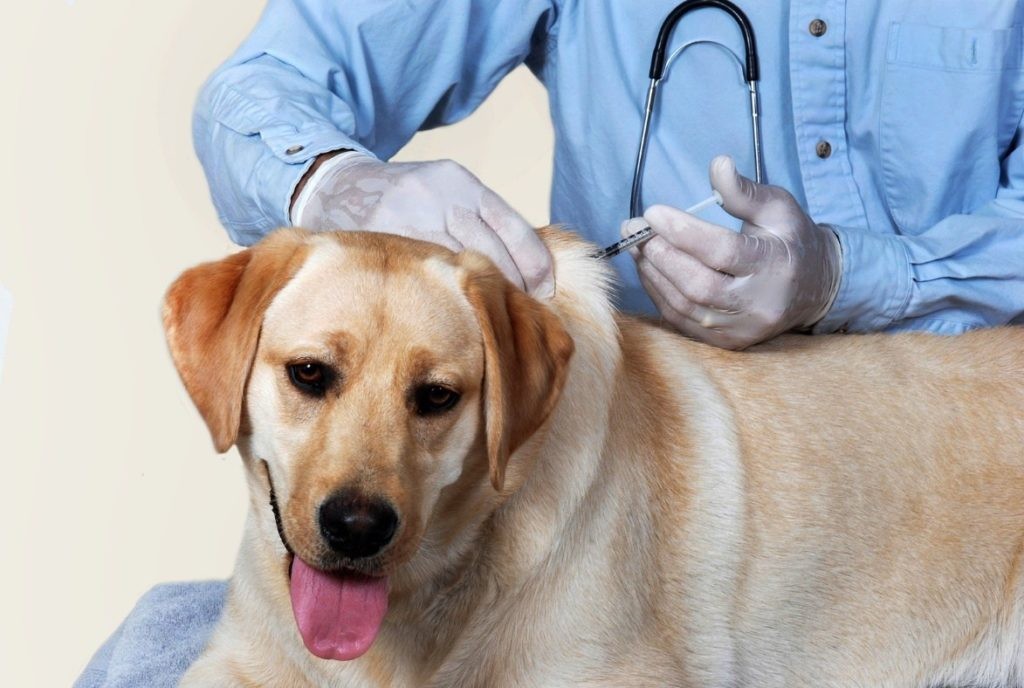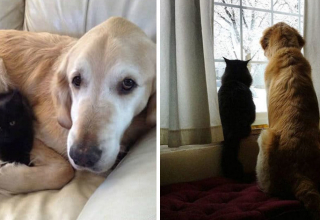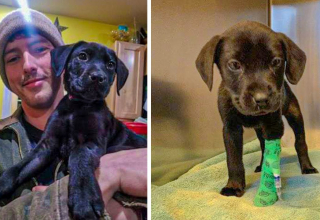
It would help if you kept your dogs up to date with the necessary vaccines to protect them from infectious diseases. This is important even if your pet is kept mostly indoors. Many contagious diseases are spread through the air, and your pet can easily be exposed through an open window. There’s also always the risk that your pet could accidentally slip out the door. Kennels, dog parks, and grooming salons are areas where your dog is likely to contract infectious diseases. So be sure to consult your veterinarian before taking your pet to any of these places. Also, remember that vaccinations take days to weeks to be effective. Learn about the essential vaccines for dogs with Begy Pet Blog!

The first 1-5 names on this list are Viral Fever – Hepatitis – Leptospirosis – Influenza – Parvo
These 5 viruses are usually vaccinated in 1 combined dose of DHLPP, respectively Distemper, Hepatitis (Adenovirus), Leptospira, Parainfluenza, and Parvovirus.
A synthetic injection will be the optimal choice for you and your dog because no one wants to see the doctor as often!
The first vaccination is recommended when the puppy is 6 to 8 weeks old, the following shots are usually given at 2-4 weeks at 10 to 12 weeks, 14 to 16 weeks, 18 to 20 weeks of age. The booster shots will be decided by the veterinarian.
However, the sens should not be too worried, please encourage your dogs as you have been encouraged.
“The injection doesn’t hurt, just like an ant bite!” – This is probably the saying you hear the most in every injection.
Now let’s bring that saying to encourage morale for your scared puppy!
6. Rabies Vaccine
Rabies is probably quite “famous” in the world because the manifestations of rabies dogs scare us!
Your dog may accidentally contract the rabies virus while playing in the park with another dog carrying the rabies virus. For the future, the dog is healthy and has fun, when the dog turns 1 year old, you should take the dog for vaccination!

7. Lyme Vaccine
The Lyme virus ranges from a “tiny” flea bite to a dog’s nerve and heart damage. Therefore, you should always watch for parasites under the pet’s coat to see signs of “wiggle” that must be eliminated immediately. Another effective way of prevention is vaccination against the Lyme virus at 12-15 weeks of age.
8. Vaccines to prevent bronchitis
As a disease caused by bacteria and spread through pollutants in the air, bronchitis is quite common. Not only do they cause common sneezing and runny nose, but they also cause dogs to skip meals.
One more piece of information is that if you intend to let your dog travel abroad by plane, the stamp “Picked up” with bronchitis vaccine is considered a valid “passport book” for your pet!
When your dog is 12-15 weeks old, take him to the vet. There are two options for your dog: regular vaccinations or sprays are fine.
9. Coronavirus Vaccine
One of the ten essential vaccines for dogs is the coronavirus vaccine transmitted through saliva and causes intestinal damage.
From 6-9 weeks is a “sensitive” time; puppies need to be vaccinated and have a booster shot when the puppy is 12-15 weeks old.
10. Vaccine for Care
Finally, Care disease is a brother to Parvo, causing intestinal problems for dogs. So go to the veterinary hospital, the doctor may suggest a 2-in-1 vaccine against both diseases.
Care vaccines are usually given very early – as soon as the puppy is five weeks old, you should bring your dog in for vaccinations and get the necessary advice from the doctor.
You also have to be a pretty patient person when you read all the ten vaccines I mentioned below. 6 or 10 vaccines are not needed. At the current level of science as advanced as today, there are also “7 in 1” vaccines for pets. So don’t worry too much but be friends to take care of and protect your pet!



























